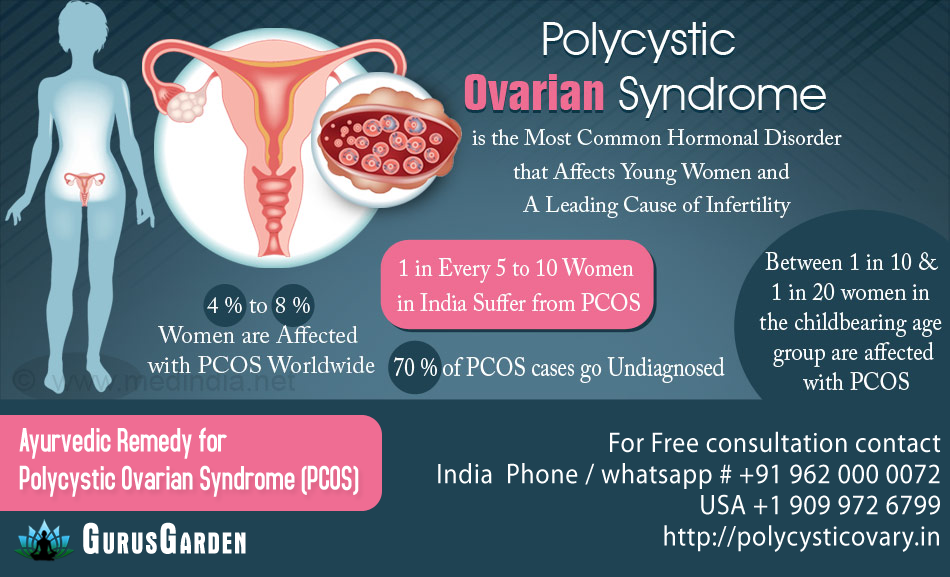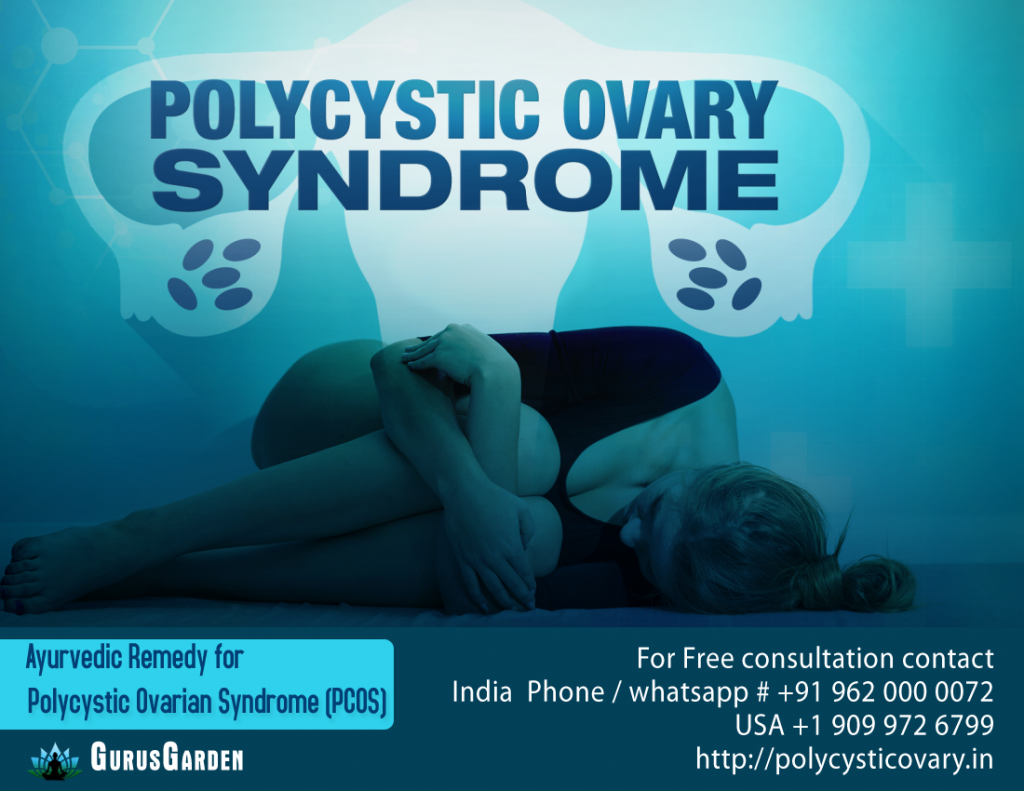PCOD (Poly Cystic Ovarian Disease) or PCOS (Poly Cystic Ovarian Syndrome) is a disease characterized by multiple (‘poly’) cysts (small sacs filled with fluid) in the ovaries.
Patients with PCOD have abnormal levels of hormones that result in irregular menses, infertility and certain masculine changes in the body.
Polycystic ovaries are generally larger in size and denser than the normal ovaries. It usually occurs when the sex hormones go out of balance and your body starts producing more male hormones thus resulting in facial hair and acne. PCOD is one of the most common reasons for infertility.
PCOD (Polycystic Ovary Disorder) can cause problems with a women’s menstrual cycle, fertility, cardiac function and appearance. Women who have polycystic ovary have multiple small cysts in their ovaries that occur when the regular changes of a normal menstrual cycle are disrupted.
PCOD Symptoms:
Symptoms of PCOS typically start soon after a woman begins to menstruate for the first time. The type and severity of symptoms varies from person to person. The most common characteristic of PCOS is irregular menstrual periods.
Because PCOS is marked by a decrease in female sex hormones, this condition may cause women to develop certain masculine characteristics, such as:
- excess hair on the face, chest, stomach, thumbs, or toes
- decrease in breast size
- deeper voice
- hair loss
Other symptoms may include:
- Irregular menses (usually delayed)
- Weight gain and difficulty in losing weight
- Acne, oily skin, dandruff
- Excessive hair growth on the face, chest, back
- Thinning of hair
- Infertility
- Miscarriage
- High blood pressure
- Diabetes
- High cholesterol
Girls as young as 11 years can be affected with PCOD/PCOS. It has become so common that 1 out of 10 women suffers from PCOD. There are various signs that point to PCOD but we tend to ignore them.
The various causes of PCOD could be:
High insulin levels – When you have a high level of insulin, it affects the ovaries by increasing the production of androgen that might interfere with the ovaries’ ability to ovulate.
Hereditary – If your mother or sister have a history of PCOD, then chances are you too might get diagnosed with this health issue.
Low-grade inflammation – When women have low-grade inflammation, it stimulates ovaries to produce androgens thus leading to PCOD.
Diet for PCOD:
Diet forms a vitally important part of PCOD. It should be kept in mind that people suffering from PCOD need to stay away from refined flour and sugar, carbohydrates, rather their diet should consist more of raw fruits and vegetables, and with foods that have low Glycemic Index.
How is PCOS diagnosed?
There is no definitive test for PCOS. To make a diagnosis, your doctor will review your medical history and symptoms and perform tests to rule out other possible conditions. Your doctor will perform a physical and pelvic examination to look for signs of PCOS, such as swollen ovaries or a swollen clitoris.
Blood tests to measure sex hormone levels are typically ordered, as well as:
- thyroid function tests to determine how much of the thyroid hormone your body produces
- fasting glucose tests to measure your blood sugar levels
- lipid level tests to assess the amount of cholesterol in your blood
A vaginal ultrasound allows your gynecologist to create real-time images of your reproductive organs. A pelvic laparoscopy is a surgical procedure in which your doctor makes a small incision in your abdomen and inserts a tiny camera to check for growths on your ovaries. If growths are present, your doctor may take a small tissue sample (biopsy) for further examination.
What are the potential complications of PCOS?
Women with PCOS have a higher risk of developing:
If you become pregnant, your doctor may refer you to a doctor who specializes in high-risk pregnancies. Women with PCOS have a higher rate of miscarriage, gestational diabetes, and premature delivery. They may need extra monitoring during pregnancy.
The earlier your PCOS is diagnosed and treated, the lower your risk of developing these complications. Avoiding tobacco products and participating in regular exercise can also reduce your risk of some of these comorbidities. Talk with your doctor about what PCOS means for your overall health and how you can prevent serious complications.
Read more : http://gurusgarden.com/disease.aspx?did=PCOD-PCOS





